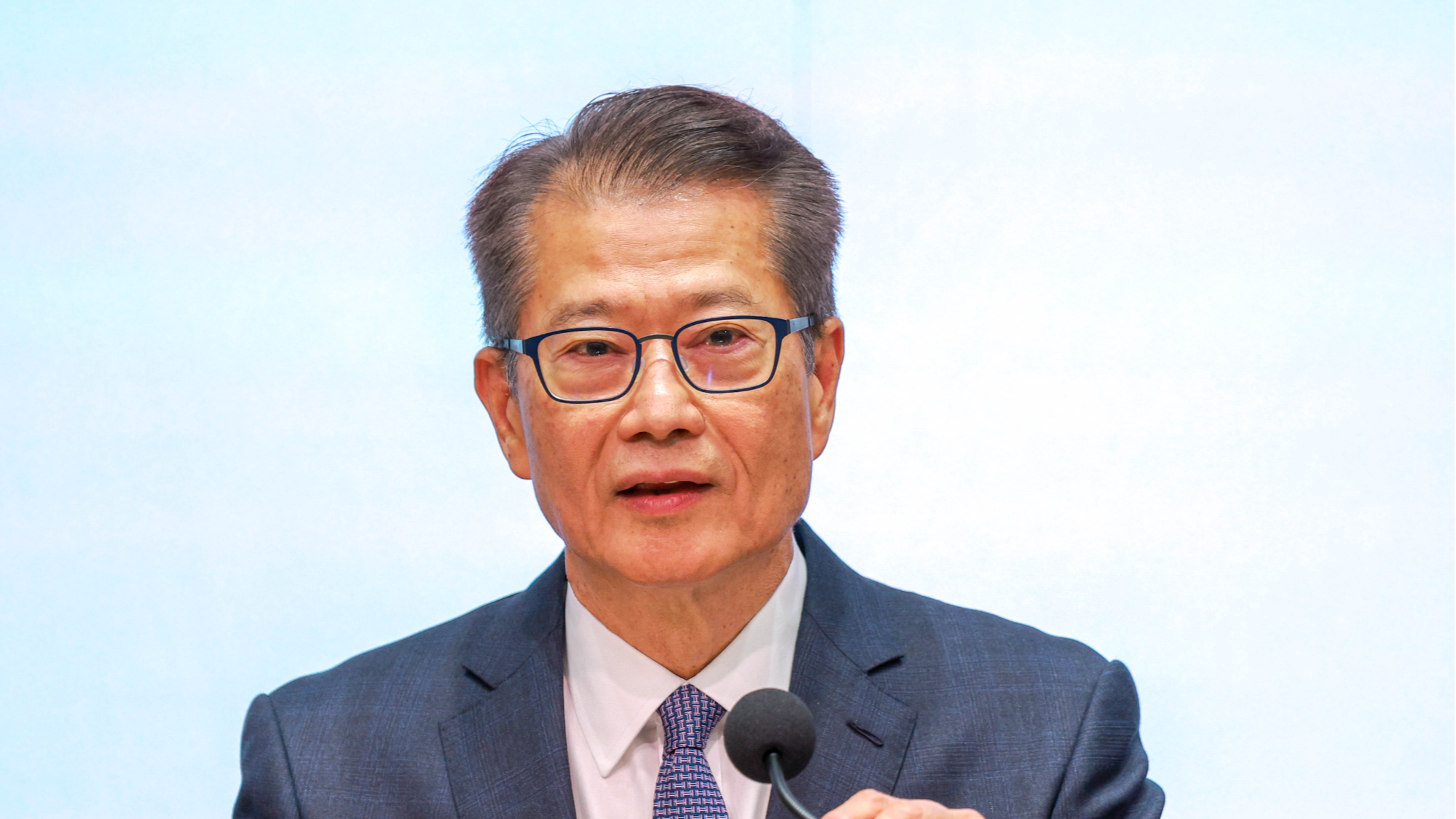
As Hong Kong faces an economic transformation shaped by geopolitical, technological and digital changes, as well as fierce global competition, the city has made progress in restructuring its industrial structure, maintaining its status as an international financial center, and promoting innovation and technology.
Hong Kong Financial Secretary Paul Chan Mo-po made the remark on Wednesday at a news conference detailing a report on Hong Kong’s business environment.
Four years after the first such report, the special administrative region government on Wednesday published its second “Report on Hong Kong’s Business Environment: Unique Strengths Under ‘One Country, Two Systems’ ”. The report provides details on Hong Kong’s latest developments and strengths, comprehensively showcasing Hong Kong’s open, safe, stable, efficient and internationalized business environment.
READ MORE: Hong Kong remains as financially strong as ever
With the Hong Kong economy growing 3.1 percent in the first quarter of this year, the SAR government expects the economy to extend the positive momentum in the second quarter.
Although the external environment is complex and changeable because of geopolitics and the US-tariffs controversy, and other uncertainties, mainland export companies have rearranged their overseas industrial chains to mitigate the effects of the tariff war, Chan said.
“Local consumption has also stabilized, and the government has successfully attracted tourists by organizing major mega events,” Chan said. “The number of visitors to Hong Kong has increased by double digits percentagewise in the first half of the year, and the growth of international tourists has been significant, all of which have helped the market to a certain extent.”
Hong Kong’s economy is currently undergoing a transition with a revival of initial public offering fundraising as well as its asset and wealth management business, while traditional industries such as retail, catering and movie theaters are faltering.
“The responses and pace of adjustment across various industries may not be uniform. Some emerging industries are performing better, while some industries, especially traditional industries, are facing pressure and challenges in their transformation. The government will provide assistance through various financial guarantees and digital transformation programs so that industries can adapt to the changes faster and better,” Chan said.
Chan said Hong Kong’s residential property prices have stabilized, with the asking prices of new properties close to the market value, and sales are doing well. He expects the new companies and professionals coming to Hong Kong will be the next-stage buyers of commercial and residential properties.
“We believe the city’s secondary property market will gradually become active. As the pace of interest rate cuts in the United States (US) has been slower than expected while overseas capital inflows into Hong Kong have increased in the past two or three months, the Hong Kong interbank offered rate has decreased, which is helpful to the property market,” Chan said.
The finance chief said there has been a demand recovery for commercial properties in Hong Kong.
READ MORE: CE: Economic transformation an imperative for HK
“Multinational financial institutions engaged in wealth management or hedge funds have leased multistory office buildings in Central, and over 80 key strategic enterprises brought in by the Office for Attracting Strategic Enterprises have leased over 1.6 million square feet (148,600 square meters) of commercial spaces. The government has refrained from selling commercial land to provide time for the market to absorb the excess inventory,” Chan said.
Mary Huen Wai-yi, chairperson of the Hong Kong Association of Banks, said, “The banking industry will continue to closely collaborate with various sectors, leverage Hong Kong’s unique advantages, and seize opportunities in emerging areas such as fintech and green finance for innovation, thereby attracting more talent and leading enterprises to the city and supporting high-quality economic growth.”
Lo Kam-wing, president of the Chinese Manufacturers’ Association of Hong Kong, said, “Hong Kong stands at a new starting point for high-quality development driven by innovation. The business community should actively seize opportunities offered by national strategies such as the Guangdong-Hong Kong-Macao Greater Bay Area (GBA) and the Belt and Road Initiative (BRI), and play a greater role in industrial upgrading, brand expansion, and supply chain restructuring.”


